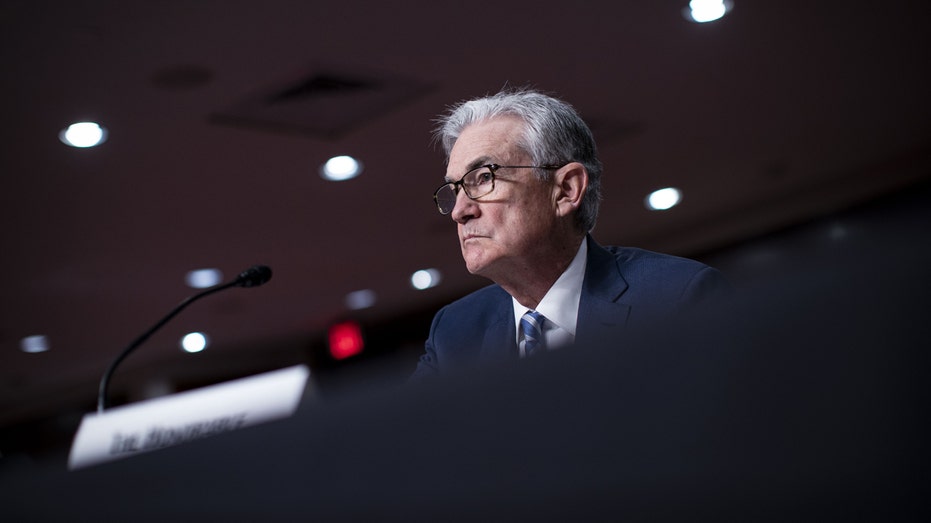US economy surged 6.9% in the fourth quarter before omicron impact
Refinitiv economists expected report to show economy had expanded by 5.5%.
Outlook for markets in 2022, GDP
Navellier & Associates chairman and founder Louis Navellier on his predictions for the markets in 2022 and how the political landscape impacts wall street.
The U.S. economy accelerated more than expected in the final three months of the year, helping the nation record its best year for growth in nearly four decades before the highly contagious omicron variant of the coronavirus dampened consumer spending and further strained the global supply chain.
Gross domestic product, the broadest measure of goods and services produced across the economy, grew by 6.9% on an annualized basis in the three-month period from October through December, the Commerce Department said in its first reading of the data Thursday. It marked the strongest quarterly growth in a year.
Refinitiv economists expected the report to show the economy had expanded by 5.5%.
SURGING INFLATION TAKES HOLD IN MOUNTAIN STATES, WITH RATES NEAR 9%
But the headline figure often obscures the whole picture because the Commerce Department calculates the GDP on a quarter-over-quarter basis as if that level of growth were sustained for a full year; in times of huge swings up or down, it can exaggerate both the decline in growth and the subsequent rebound.
Looking at the quarterly data, the nation's GDP grew about 1.7% from the third to the fourth quarter, compared with an increase of just 0.6% between the second and third quarters, marking a substantial uptick as businesses reopened and Americans spent down their savings following the delta variant surge this summer and fall.

In this Nov. 4, 2019, photo, a worker prepares a piece of Cat construction equipment made by Caterpillar to be lifted off a trailer at the Port of Tacoma in Tacoma, Washington. (AP Photo/Ted S. Warren / AP Newsroom)
The strong end-of-year growth boosted GDP to 5.7% in all of 2021, compared to the previous year. It was the strongest one-year growth since 1984, when the economy expanded by 7.2% following a previous recession.
Still, the economy is expected to slow this year as it confronts the hottest inflation in nearly four decades and stubbornly high COVID-19 caseloads. The dramatic rise in consumer prices over the past 12 months – in December, inflation hit a fresh 40-year high – has forced the Federal Reserve to dramatically shift its policy stance, including rapidly slowing its bond purchases, ending the buying program earlier than expected and setting the table for a March interest rate hike.
FED SIGNALS INTEREST RATE HIKE COULD COME 'SOON' AS INFLATION RAGES
Fed policymakers telegraphed on Wednesday that they plan to raise interest rates multiple times this year in order to cool surging consumer prices, bringing to an end nearly two years of ultra-easy monetary policies.
The new challenges have prompted economists to downgrade their expectations for the year: The International Monetary Fund said in its latest World Economic Outlook released this week that the U.S. will grow by 4% in 2022, down 1.2 percentage points from its forecast in October.

Jerome Powell, chairman of the U.S. Federal Reserve, during a Senate Banking, Housing and Urban Affairs Committee hearing in Washington, D.C., on Tuesday, Nov. 30, 2021 (Al Drago/Bloomberg via Getty Images / Getty Images)
In other economic news, the Labor Department reported on Thursday that 260,000 Americans filed for unemployment benefits for the week ended Jan. 22, in line with estimates. Although jobless claims appeared to be moderating at the end of 2021 – falling to the lowest level since 1969 – they have ticked up in recent weeks as the U.S. confronts a stunning rise in coronavirus cases driven by the highly transmissible omicron variant.
While it's still unclear what the fast-spreading variant will ultimately mean for the health of the economy, its effects on daily life have already been felt. Thousands of flights have been canceled, Broadway shows are shuttering their doors and a growing number of schools have postponed reopenings. The White House has maintained that it has the resources needed to respond to any disruptions caused by the omicron spread.
GET FOX BUSINESS ON THE GO BY CLICKING HERE
"The omicron variant almost surely took the edge off growth during the final month of the year, and it is clearly extracting a powerful toll on overall economic activity in the first quarter of 2022," said Joe Brusuelas, RSM chief economist.
